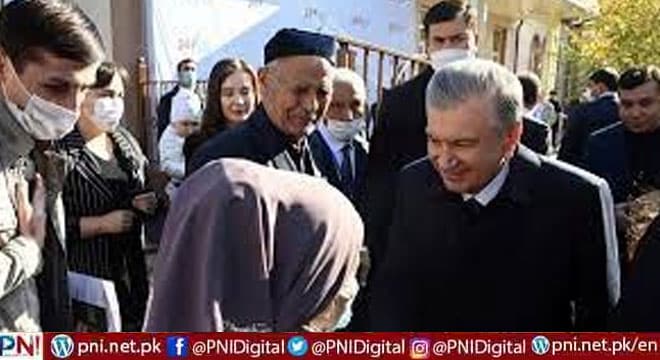Tashkent, March 15 (AFP/APP): A constitutional referendum set for late April in Uzbekistan could extend President Shavkat Mirziyoyev’s rule of the Central Asian nation for at least another decade, authorities announced Wednesday.
Mirziyoyev came to power in 2016 after the death of his autocratic predecessor Islam Karimov and has pushed through significant economic and social reforms.
But his government is accused by aid organisations of trampling on people’s basic rights in Central Asia’s most populous country, home to 35 million people.
The constitutional amendment would allow the 65-year-old to stand for re-election in 2026 and, if re-elected, to remain in power until 2033 or even 2040.
According to a draft proposal, the president’s term would be extended to seven years and candidates would “have the right to run… regardless of the number of consecutive terms” already served.
The proposed new constitution, which would amend two-thirds of the current basic law, will be put to a vote on April 30.
Mirziyoyev, after taking power in 2016, was re-elected for five years with more than 80 percent of the vote in October 2021 in an election that international observers said was devoid of real competition.
– Deadly demonstrations –
Validated almost unanimously by the two chambers of parliament, the proposal also plans to make Uzbekistan a “social state” where “the human being, his life, his freedom, his honour and his dignity are the supreme values”.
The constitutional amendment, which planned to reduce the autonomy of the Republic of Karakalpakstan, a desert region of Uzbekistan and one of the poorest in the country, has been abandoned.
In July 2022, demonstrations broke out in Karakalpakstan to denounce the draft proposal, which resulted in an official death toll of 21 people, the internet being cut off and the declaration of a state of emergency.
After the death of his predecessor, Mirziyoyev carried out major economic and social reforms, but human rights groups’ criticisms have grown.
During his first visit to the region in early March, US Secretary of State Antony Blinken called on Uzbekistan to respect fundamental freedoms and continue ongoing reforms.
In particular, Mirziyoyev has put an end in recent years to forced labour in the cotton fields, including child labour, a measure that has been hailed worldwide, and the country wants to join the World Trade Organization.
In another sign of the country’s desire to turn the page on the isolationist years of Karimov, Uzbekistan announced at the end of January that it had demarcated its border with Kyrgyzstan, a source of recurrent problems since the fall of the Soviet Union.
Follow the PNI Facebook page for the latest news and updates.









